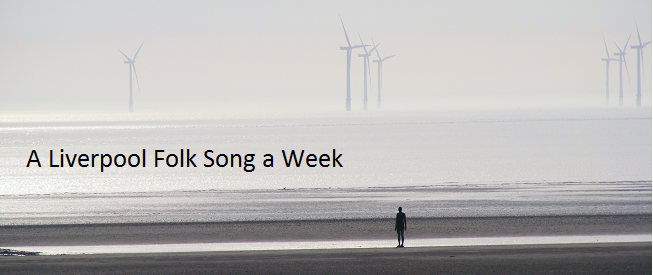Friday 29 June 2012
Out of the country for a couple of weeks
I'm away on my travels for a while, and so won't be able to record anything for the blog for a couple of weeks. But I have a couple of good songs ready for my return! See you then...
Saturday 16 June 2012
52: Last Night We Had a Do

Can't say I know too much about this song. A fragment is included in Frank Shaw's book of Liverpool children's rhymes You Know Me Anty Nelly? - "Last night we had a do, some chipped potatoes too..." - but that's as far as it goes. The version I'm singing here comes from Stan Kelly's songbook, and he says that it's "deconstructed from childhood memories". The Spinners recorded an album bearing the title of this song, but the album doesn't actually include this song or anything like it. Anyway, if it triggers anybody elses memories about different versions, let me know.
The image above is of the painting "The Party", by Liverpool born painter Steve Proudfoot. It was part of the John Moores Prize exhibition at the Walker Art Gallery in 2010.
Thursday 7 June 2012
51: Little Jimmy Murphy

Alfred Perceval Graves (poet and collector of Irish folk music, and father of the poet Robert Graves) published the tune and words for this ballad in the Journal of the Irish Folk Society Vol. 13 (1913). Graves collected it from Humphrey Jones, in Harlech, Wales; but in turn, the Harlech source had "collected 'Little Jimmy Murphy' from an Irish street ballad singer in Liverpool in the year 1840, when he himself was a lad of 18. He said the ballad had such a success in the Irish quarter of Liverpool that the coppers positively rained from the windows upon the singer beneath".
The most unusual part of this song is the string of nonsense syllables in the chorus, preserved in all known versions. The theme of the song is usually understood to be the 1798 Irish Insurrection, with some going so far as to suggest that the Jimmy Murphy's stated crime of courting Kate Whelan in the 3rd verse is a veiled reference to Cathleen ni Houlihan, a mythical personification of the Irish nation alluded to in Irish nationalist literature. Anyway, important to have something that represents the close association between some (though by no means all!) of Liverpool's population and the cause of Irish independence - Liverpool's Scotland Road constitutency even elected an Irish nationalist party MP in the person of Thomas O'Connor between 1885 and 1929. And of course it gives us a nice insight into the kind of thing street ballad singers were singing in the first half of the 19th century.
In the Roud folksong index, this is #7951
Subscribe to:
Posts (Atom)
